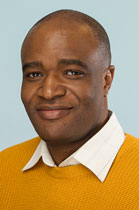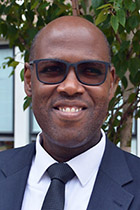Nigeria and the Practice of Whistleblowing – How Not to Mobilize Citizens’ Participation in Anti-Corruption Programme
 Relying on the Nigerian case, this study uses the principles of public participation theory to show how faulty anti-corruption designs and implementation processes can exacerbate political corruption and breed ineffective anti-corruption regulations. Applying an exploratory research design and triangulating information from official sources and mainstream literature, the study reveals that the government’s attempt to implicitly and explicitly implement whistleblowing regulations generated design lapses that prioritized monetary recovery above the need for public protection while at the same time worsening the risk of retaliation against whistleblowers. The study reaffirms the need for effective mechanisms to be put in place to guarantee protection against potential risks of retaliation and to discourage self-interested tendencies among potential citizens’ participation. For example, the reward system inherent in explicit whistleblowing regulations can be redefined in non-monetary terms to make whistleblowing less susceptible to abuses by self-serving individuals.
Relying on the Nigerian case, this study uses the principles of public participation theory to show how faulty anti-corruption designs and implementation processes can exacerbate political corruption and breed ineffective anti-corruption regulations. Applying an exploratory research design and triangulating information from official sources and mainstream literature, the study reveals that the government’s attempt to implicitly and explicitly implement whistleblowing regulations generated design lapses that prioritized monetary recovery above the need for public protection while at the same time worsening the risk of retaliation against whistleblowers. The study reaffirms the need for effective mechanisms to be put in place to guarantee protection against potential risks of retaliation and to discourage self-interested tendencies among potential citizens’ participation. For example, the reward system inherent in explicit whistleblowing regulations can be redefined in non-monetary terms to make whistleblowing less susceptible to abuses by self-serving individuals.
Author(s) / editor(s)
About the author(s) / editor(s)
 Akinyinka Akinyoade is the Chair of the Researchers' Assembly of the African Studies Centre Leiden. He is a Hydrologist turned Demographer. He obtained a Doctoral degree in Development Studies with emphasis on Population and Rural Development at the International Institute of Social Studies (ISS), The Hague. Akinyinka’s research activities are on population health and development, with special attention on fertility dynamics and family planning in West Africa; migration (human trafficking and forced labour in Nigeria); decentralisation (public service delivery in education and health sectors of Nigeria, Cameroon, Tanzania and Indonesia).
Akinyinka Akinyoade is the Chair of the Researchers' Assembly of the African Studies Centre Leiden. He is a Hydrologist turned Demographer. He obtained a Doctoral degree in Development Studies with emphasis on Population and Rural Development at the International Institute of Social Studies (ISS), The Hague. Akinyinka’s research activities are on population health and development, with special attention on fertility dynamics and family planning in West Africa; migration (human trafficking and forced labour in Nigeria); decentralisation (public service delivery in education and health sectors of Nigeria, Cameroon, Tanzania and Indonesia).
 Professor Chibuike Uche is the chairholder of the Stephen Ellis Chair for the Governance of Finance and Integrity in Africa.
Professor Chibuike Uche is the chairholder of the Stephen Ellis Chair for the Governance of Finance and Integrity in Africa.
Chibuike Uche has extensive research experience in Nigeria, Ghana and Sierra Leone in the fields of political economy, business and financial history, financial institutions regulation and regional integration. His current research interest is foreign business operations in Africa.

